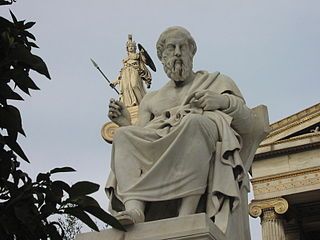Our Lack of Interest in Sustainability

In this way misology, the hatred of reason, arises. Socrates now confronts misology “because there’s no greater evil that could befall anyone” (89d2-3).
— Paul Stern, Socratic Rationalism and Political Philosophy, 1993
Obviously, this isn’t a term found too often in everyday discourse. I bring it up only because it applies so well, sadly and ironically, to our discussions on sustainability here. In its absence, it’s hard to explain our pretending that climate change doesn’t exist, and that our clearing the Amazon rain forest is acceptable behavior.

It’s disturbing, but not shocking, that you will find this anti-intellectualism described as the eleventh of fourteen in Laurence W. Britt’s oft-cited article, “Fascism Anyone?”. Here’s a link to that article.
http://www.oldamericancentury.org/whitepapers/defining/identifiers_britt.htm
A similar list of fourteen features of fascism was assembled in this 1995 article by Italian semiotician, essayist, philosopher Umberto Eco, where this attitude features as #3:
http://www.themodernword.com/eco/eco_blackshirt.html
Wow. You never cease to amaze me with your command of all this stuff.
Thanks, Craig – it’s not a subject often addressed inm our six-company corporate media (for reasons that will become increasingly obvious), so I like to share about it when appropriate.
This following information may serve to shed some light on the confluence of those elite and entrenched interests of capital and the current and continuing expansion of fascist thought and tendencies in our society…
Mark Neocleous, a lecturer in politics at Brunel University in the UK, wrote:
“Despite its self-designation as socialist and its appropriation of some of the language, slogans and liturgy of the left, fascism established itself historically as a defense of capitalism and thus a reaction against working-class revolutionary potential.”
“Fascism mobilizes this revolutionary energy while simultaneously taming the force behind it. As Walter Benjamin puts it, ‘Fascism attempts to organize the masses without affecting the property structure which the masses strive to eliminate. Fascism sees its salvation in giving these masses, not their right, but instead [merely] a chance to express themselves. The masses have a right to change property relations; [but] fascism seeks to give them an expression while preserving property.’”
“To the extent that fascism tames the working class, it reveals itself as a mechanism in the service of the capitalist order.”
“This highlights the importance of max Horkheimer’s claim that ‘whoever is not willing to talk about capitalism should also keep quiet about fascism.’”
Max Horkheimer, a philosopher and sociologist, famous for his work in critical theory as a member of the “Frankfurt School” of social research, wrote:
“Fascism saved the right of disposal over the means of production for the minority which emerged from the competitive struggle as the most determined force. This echoes Dimitrov’s definition of fascism as “the most open terrorist dictatorship of the most reactionary, most chauvinistic and most imperialist elements of financial capital.”
Stanley Aronowitz, professor of sociology at the Graduate Center, City University of New York, wrote:
“Capitalism, in crisis, could no longer tolerate democratic liberties where labor and socialist movements were strong; even the elementary right of workers and [of] members of the middle class to organize freely in their own immediate interests was untenable.”
“Fascism represented the merger of the giant corporation with the state. The ‘command’ state came into being where capital required assistance from the legitimate authority of government to promote investment on a grand scale. No longer confined to the rails and other means of communication, state investment and planning would now direct the very processes of capital accumulation.”
“It was supported by the biggest financial and industrial capitalists, who now required emergency measures to save the system.”
“Fascism was no extraordinary development that contradicted the main drift of capitalism. On the contrary, according to Max Horkheimer, fascism was the logical development from monopoly capitalism.”
“Contrary to the main tendency of Marxist explanation, he insists that the authoritarian state is immanent in capitalist development, and that the modern era has brought the tendency toward state capitalism to fruition.”